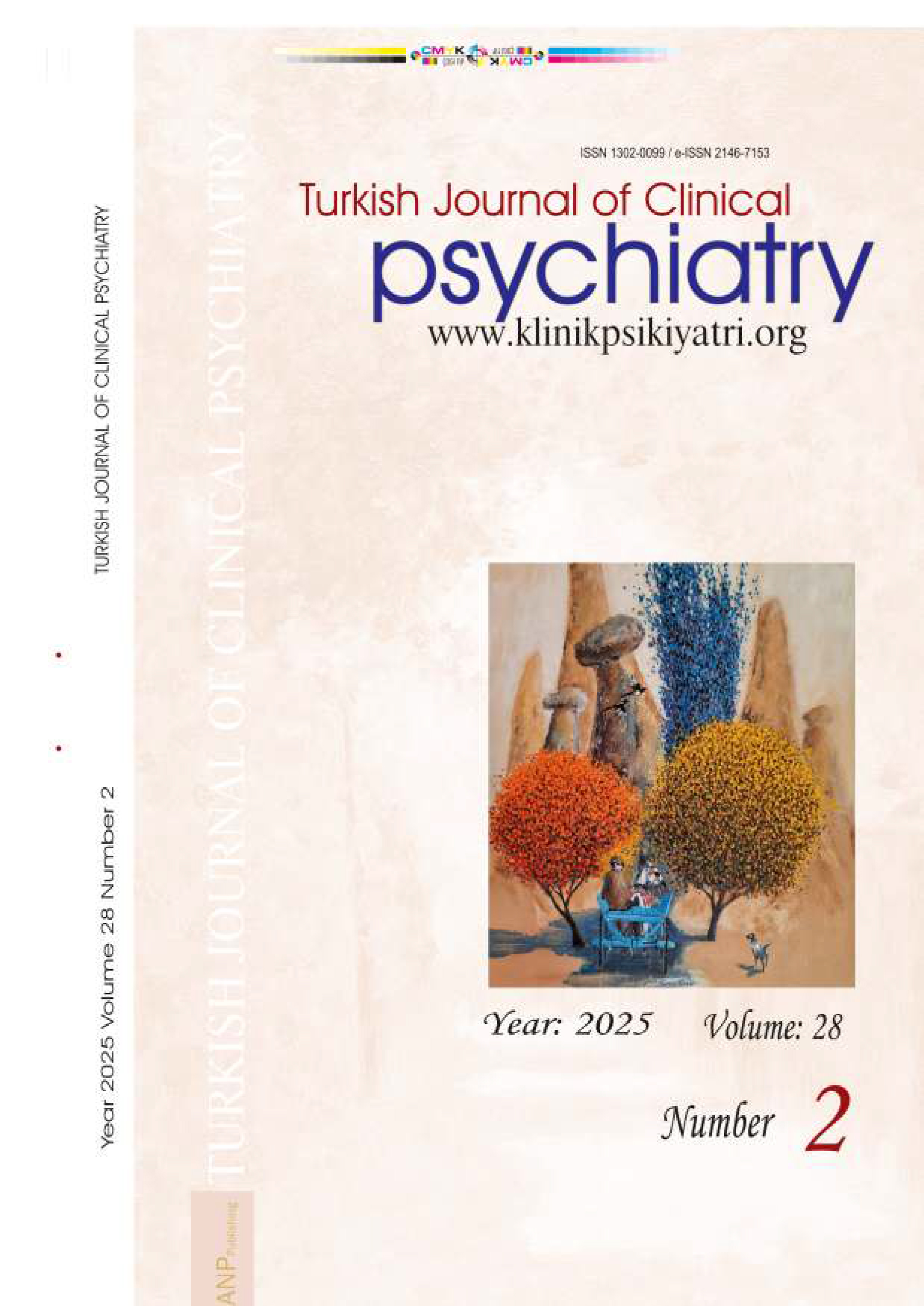





Relation of ASC and IL-1beta with neurocognitive parameters in patients with obsessive compulsive disorder (eng)
Melike Tetik1, Betül Önder Uzgan2, Cansu Aykaç1, Burcu Ekinci3, Tutku Yaraş3, Aykut Kuruoğlu4, Özge Akgül5, Tunç Alkın61Department Of Neuroscience, Health Sciences Institute, Dokuz Eylul University, Izmir, Turkey2Department Of Biology, Çanakkale Onsekiz Mart University Faculty Of Arts And Sciences, Çanakkale, Turkey
3Izmir International Biomedicine And Genome Institute, Dokuz Eylul University, Izmir, Turkey,
4Izmir Biomedicine and Genome Center, Izmir, Turkey
5Department Of Psychology, İzmir Democracy University Faculty Of Arts And Sciences, İzmir, Turkey
6Department Of Psychiatry, Dokuz Eylul University Faculty Of Medicine, Izmir, Turkey
INTRODUCTION: It is now well accepted that inflammatory processes play a role in the etiopathogenesis of psychiatric disorders. NLRP3 inflammasome, which is formed by the combination of NLRP3, ASC and Caspase-1 proteins, and its activator NEK7, takes part in these processes. In this study, we aimed to investigate the relationship between inflammatory markers (i.e. IL-1β, IL-18, NLRP3 inflammasome protein levels) and cognitive functions in patients with obsessive compulsive disorder (OCD).
METHODS: Forty-two patients between the ages of 18-45 who were diagnosed with OCD were included in the study. Structured Clinical Interview for DSM-IV Axis I Disorders (SCID-I), Yale-Brown Obsessive Compulsive Scale (Y-BOCS), and Hamilton Depression Scale (HAM-D) were used for clinical evaluations. In order to evaluate cognitive functions, Trail Making Test (TMT), Berg Card Sorting Test and Category Fluency Test were applied. IL-1β and IL-18 cytokine levels were determined by the ELISA method; measurement of the protein amounts of NLRP3, Caspase-1, ASC and NEK7 were performed by Western blotting.
RESULTS: Serum IL-1β was negatively correlated with TMT (B-A) (rs=-.36, p= 0.019). Similarly, ASC was negatively correlated with TMT-B and TMT (B-A) (rs=-.38, p= 0.03; rs=-0.36, p = 0.04, respectively). However, no statistically significant relationship was found between other inflammatory parameters (NLRP3, Caspase-1, and IL-18) and neurocognitive tests.
DISCUSSION AND CONCLUSION: Our results indicate that some aspects of neurocognitive impairment in patients with OCD might be related to neuroinflammatory processes, with implications for our understanding of the pathogenesis of OCD.
Obsesif kompulsif bozukluğu olan hastalarda ASC ve IL-1beta'nın nörobilişsel parametrelerle ilişkisi (eng)
Melike Tetik1, Betül Önder Uzgan2, Cansu Aykaç1, Burcu Ekinci3, Tutku Yaraş3, Aykut Kuruoğlu4, Özge Akgül5, Tunç Alkın61Dokuz Eylül Üniversitesi Sağlık Bilimleri Enstitüsü Sinirbilimler Anabilim Dalı, İzmir2Çanakkale Onsekiz Mart Üniversitesi, Fen Edebiyat Fakültesi, Biyoloji Bölümü, Çanakkale
3Dokuz Eylül Üniversitesi, Izmir Uluslararası Biyotıp Ve Genom Enstitüsü, İzmir
4İzmir Biyotıp ve Genom Merkezi, İzmir
5İzmir Demokrasi Üniversitesi, Fen Edebiyat Fakültesi, Psikoloji Bölümü, İzmir
6Dokuz Eylül Üniversitesi, Tıp Fakültesi, Psikiyatri Anabilim Dalı
GİRİŞ ve AMAÇ: İnflamatuar süreçlerin psikiyatrik bozuklukların etyopatogenezinde rol oynadığı yaygın kabul görmektedir. Bu süreçlerde NLRP3, ASC ve Caspase-1 proteinlerinin bir araya gelmesiyle ve NEK7'nin aktivasyonuyla oluşan NLRP3 inflamatuarı yer almaktadır. Bu çalışmada obsesif kompulsif bozukluk (OKB) hastalarında inflamatuar belirteçler (ör: IL-1β, IL-18, NLRP3 inflamatuar protein düzeyleri) ile bilişsel işlevler arasındaki ilişkinin araştırılması amaçlanmıştır.
YÖNTEM ve GEREÇLER: OKB tanısı almış 18-45 yaş arası kırk-iki hasta çalışmaya dahil edilmiştir. Klinik değerlendirmeler için DSM-IV Eksen I. Bozuklukları için Yapılandırılmış Psikiyatrik Görüşme Formu (SCID-I), Yale Brown Obsesyon Kompülsiyon Ölçeği (Y-BOCS) ve Hamilton Depresyon Ölçeği (HAM-D) kullanılmıştır. Bilişsel işlevleri değerlendirmek için İz Sürme Testi (TMT), Berg Kart Eşleme Testi ve Kategori Akıcılık Testi uygulanmıştır. IL-1β ve IL-18 sitokin seviyeleri ELISA yöntemi ile belirlenirken NLRP3, Kaspaz-1, ASC ve NEK7'nin protein miktarlarının ölçümü Western blot yöntemi ile gerçekleştirilmiştir.
BULGULAR: Serum IL-1β seviyeleri, TMT (B-A) ile negatif korelasyon göstermiştir (rs=-.36, p= 0.019). Benzer şekilde ASC, TMT-B ve TMT (B-A) ile negatif korelasyon göstermiştir (sırasıyla rs=-.38, p=0.03; rs=-0.36, p=0.04). Ancak diğer inflamatuar parametreler (NLRP3, Caspase-1 ve IL-18) ile nörobilişsel testler arasında istatistiksel olarak anlamlı bir ilişki bulunamamıştır.
TARTIŞMA ve SONUÇ: Elde ettiğimiz sonuçlar, OKB'li hastalarda nörobilişsel bozulmanın bazı yönlerinin nöroinflamatuar süreçlerle ilişkili olabilceğine işaret etmektedir ve bu bulgu OKB patogenezinin anlaşılmasına katkı sağlayabilir.
Manuscript Language: English
(1225 downloaded)










